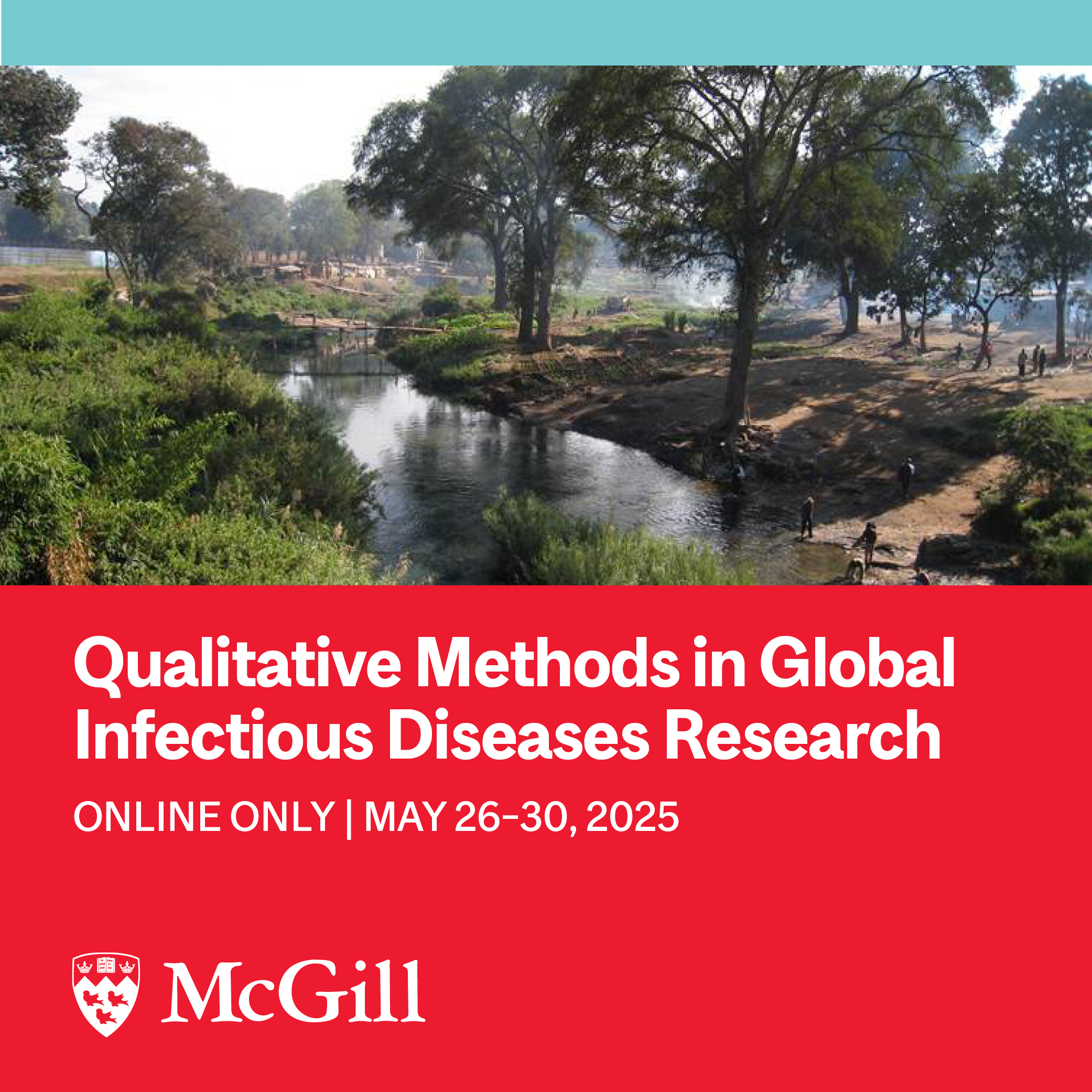
View courses by theme or by week
 Qualitative Methods in Global Infectious Diseases Research | May 26-30, 2025
Qualitative Methods in Global Infectious Diseases Research | May 26-30, 2025
Online only. Course content will be streamed live approximately 8:00 AM to 11:30 AM (Montreal time) each day May 26–30, 2025 (exact times each day to be announced). Live content will be recorded and accessible to participants until July 1, 2025, except for interactive exercises which will not be recorded.
A course focused on the principles and rigorous application of qualitative methods in formative, operational, evaluation and policy research in infectious disease in diverse global settings. Teaching includes didactical lectures, dedicated periods for interactive exercises and short topical presentations and/or panel discussions. There will be opportunities to work in small groups and develop and present draft research protocols and related outputs under the mentorship of course faculty.
Amrita Daftary, PhD, MPH
Associate Professor, School of Global Health, York University
Research Associate, CAPRISA, University of KwaZulu-Natal
Nora Engel, PhD
Associate Professor, Transdisciplinary Global Health,
Athena Institute, Vrije Universiteit Amsterdam
Jennifer Furin, Harvard University
Joanne Mantell, Columbia University
Tsitsi Masvawure, Worcester Polytechnic Institute
Andrew McDowell, Tulane University
Charity Oga-Omenka, University of Waterloo
Qualitative methods can assess the social and behavioural contexts, and the complex determinants, impacts and outcomes of illness and disease control efforts, including public health programs, policies, and technologies. There is growing interest to integrate qualitative methods into traditional operational and biomedical research to understand challenges to healthcare seeking behaviour and healthcare service delivery, and to better understand how and why some interventions and technologies are successfully (or less successfully) implemented and utilized.
This course will build participants’ research literacy to use qualitative methods to inform, innovate, contextualize, evaluate, and strengthen the delivery and utilization of healthcare services and technologies for infectious diseases (e.g., tuberculosis, HIV, COVID-19) in lower-and middle-income settings.
The course uses case studies and practical exercises to engage learners in the following qualitative research topics :
To be introduced to the principles and methods of qualitative research in the context of global infectious diseases.
Limited to 125 online participants.